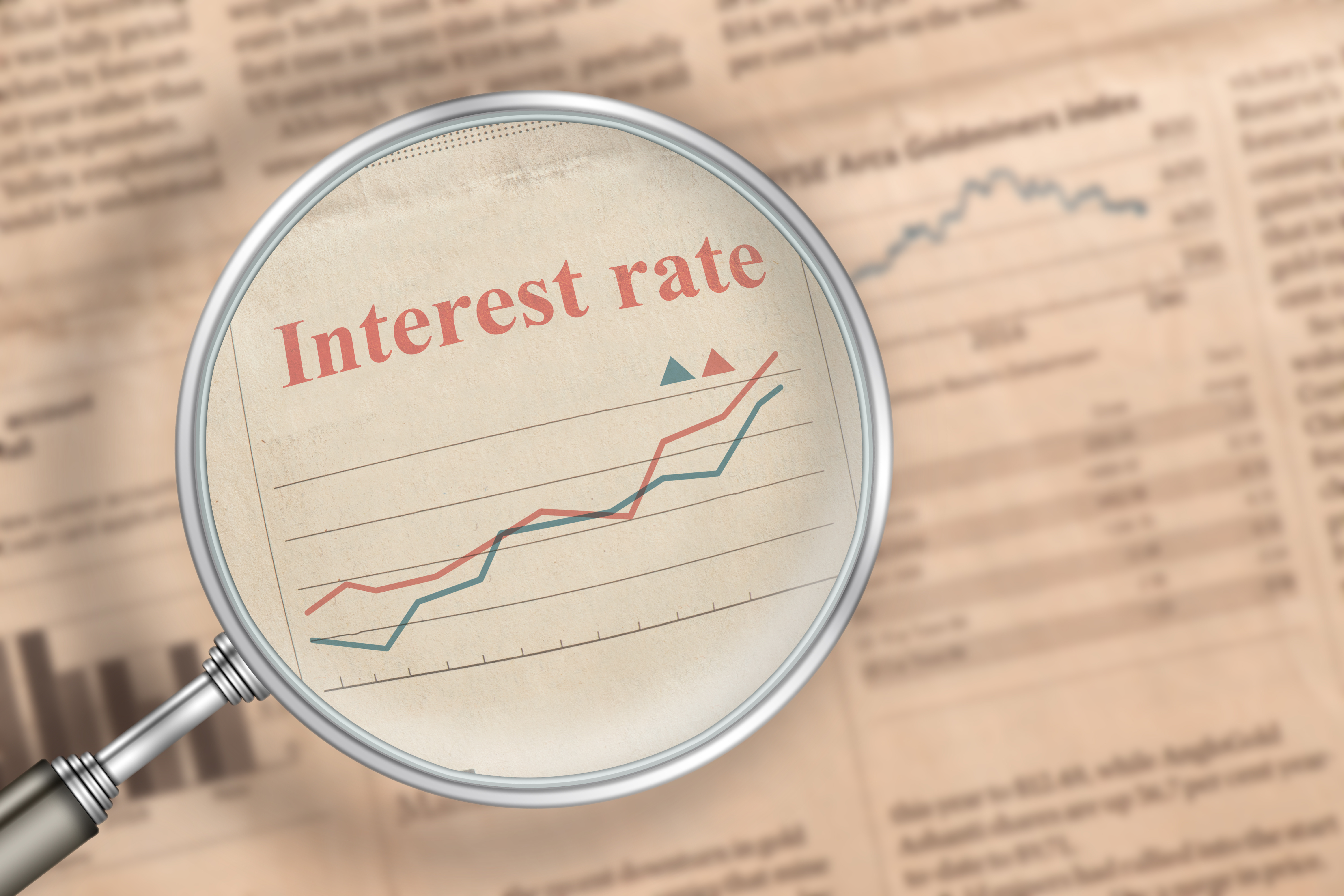How Can Market Conditions Impact Interest Rates?

Interest rates play a crucial role in nearly every financial product, influencing everything from your monthly mortgage payments to the yield on your savings account. Judging from what you hear on the news, you might assume interest rates are determined solely by the government, or more specifically, the U.S. Federal Reserve. Reality is a bit more complicated, and there are actually a variety of factors that influence interest rates and the actions of the Fed.
Supply and Demand of Credit
The basic tenets of supply and demand can push interest rates up or down. A limited supply of anything coupled with an increased demand for that thing will drive the price up. The same is true for credit. An increasing (or even steady) demand for credit coupled with a reduction in available credit will lead to higher rates.
This is fundamentally how the U.S. Federal Reserve influences interest rates. They can increase or decrease the money supply to nudge rates. They do this with complex mechanisms involving the modification of interest they pay to banks on reserve balances, adjusting the discount rate banks are charged for borrowing funds from the Federal Reserve and altering the overnight reverse repurchase agreement. They can also sell securities to reduce the money supply.
There are a variety of market-driven factors that influence the decisions of the Federal Reserve.
Basic Economic Health
In a strong economy with both wage growth and low unemployment, there is typically a higher demand for credit. People with jobs and stable or growing real wages are more likely to purchase things like cars and houses, meaning there’s an increasing demand for credit.
During a weaker economy, central banks may attempt to encourage more investment and consumer spending by lowering rates, making those larger purchases more attractive.
Market Forecasts
There are no crystal balls that allow anyone, even knowledgeable financial experts at the Federal Reserve, to know exactly what tomorrow will bring. Decisions made by central banks are largely driven by educated estimates and forecasts. Expectations about future economic conditions influence the decisions of central banks as well as individual and institutional investors.
Inflation
Inflation is the rate at which the price for goods and services rises, leading to a decrease in the purchasing power of money. When investors of all types believe inflation will increase, they will demand higher interest rates to balance out the lower value of future interest payments.
In other words, if one dollar today will only purchase you 75 cents worth of goods tomorrow, you’ll want the interest you earn on the dollar today to be higher to make up for reduced purchasing power tomorrow.
Inflation’s impact on interest rates can be driven by consumers and institutional investors as well as central banks. The fundamental role of central banks is to maintain monetary stability, which means pulling the levers available to them to influence inflation or deflation.
What Interest Rates Mean for Consumers
Lowering Rates to Fuel Growth
Lowering the federal funds rate makes borrowing cheaper, encouraging consumer spending and business investment. This can be a boon for individuals looking to take out loans at lower interest rates but might result in lower returns on savings products.
Impact on Mortgages and Auto Loans
As market conditions fluctuate, so do the rates on mortgages and auto loans. In a high-interest-rate environment, customers might find borrowing more expensive. However, this also opens opportunities for fixed-rate products that can lock in lower rates for the long term.
Savings Accounts, Checking Accounts and Share Certificates
Savings accounts and Share Certificates at OnPath Federal Credit Union are directly impacted by these shifts. In times of rising rates, savers can reap higher returns. One of the most striking examples is our exceptional High-Yield Checking Account, which allows OnPath members to earn 7% APY on balances up to $10,000.
Safe Savings With a High Yield in New Orleans
Interest rates can cut both ways, making borrowing more expensive but also increasing the yield on all types of savings products. However, it may not be in your best long-term interest to put off a home or vehicle purchase in hopes of incremental rate changes. You may still qualify for competitive rates on all types of loans when you bank with OnPath FCU. Our members can also refinance their loans in the future when it’s advantageous to do so.
Learn more about our high-yield savings opportunities as well as our consumer-friendly loan products by contacting OnPath at 800.749.6193.